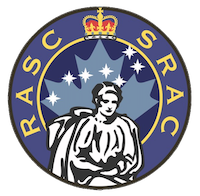Agnes Mary Clerke (10 February 1842 – 20 January 1907) was an astronomer and writer, mainly in the field of astronomy. She was born in Skibbereen, County Cork, Ireland, and died in London.
Agnes Clerke was the daughter of John Willis Clerke (ca. 1814-1890) and his wife Margaret (b. ca. 1819). Her father was a judge's registrar.
She was interested in astronomy from an early age, and had begun to write about it before the age of 15. In 1861 her family moved to Dublin, and in 1863 to Queenstown. Several years later she went to Italy where she stayed until 1877, chiefly at Florence, studying at the public library and preparing for literary work. In 1877 she settled in London.
Her first important article, "Copernicus in Italy," was published in the Edinburgh Review in October 1877. She achieved a worldwide reputation in 1885, on the appearance of her exhaustive treatise, A Popular History of Astronomy during the Nineteenth Century. Clerke was not a practical astronomer, instead collating, interpreting and summarising the results of astronomical research. In 1888 she spent three months at the Cape Observatory as the guest of the director, Sir David Gill, and his wife, and there became sufficiently familiar with spectroscopic work to be able to write about this newer branch of the science with increased clearness and confidence.
In 1892 she was awarded the Actonian Prize of 100 guineas by the Royal Institution. As a member of the British Astronomical Association she attended its meetings regularly, as well as those of the Royal Astronomical Society. In 1903, with Lady Huggins, she was elected an honorary member of the Royal Astronomical Society, a rank previously held only by two other women, Caroline Herschel and Mary Somerville.
Her sister, Ellen Mary Clerke (1840–1906), also wrote about astronomy.
At the meeting of 1891-12-01 a letter from Miss Clerke was read: "I have great pleasure in accepting the flattering offer which you have been so kind to transmit to me. I shall consider it a high honour to be affiliated, in the manner you propose, to the Astronomical and Physical Society of Toronto, which already gives promise of being a powerful agency for the promotion of astronomical activity in your great country. The first report, which I had the pleasure of receiving yesterday, is full of interest, and I hope on the first opportunity to offer some small contribution to it. I fear I can suggest little that might be effective for pressing the ladies of Toronto into the service. The means already adopted by you, of showing off the heavenly bodies, I should have thought most likely to be successful. Popular lectures might be a further help. The main thing is to kindle a spark, the rest might be left comparatively speaking, to take care of itself, - though, indeed, the really effective workers in astronomy are only a few out of many." Miss Clerke's advice on the point referred to had been sought.
On motion of Mr. A.F. Miller, seconded by Mr. John A. Paterson, M.A., Miss Clerke was elected a Corresponding Member. High tributes were paid by the mover and seconder and the Chairman to the distinguished candidate, whose excellent works were in the Society's library and had been read with much interest.
Miss Clerke later replied:
68 Redcliffe Square, London, W.C., Dec. 15th, 1891.
Dear Sir,
Thank you for your kind note of December 2nd, announcing my election as a Corresponding Member of the Astronomical and Physical Society of Toronto. I am very sensible of the honour done me, and feel greatly obliged to Merrs. Miller and Paterson for their evident cordial recommendation of my candidature. I will keep the paper carefully in mind, and try to make it interesting.
Believe me to be, faithully yours, Agnes M. Clerke.
The lunar crater Clerke is named after her.
Surname:
Clerke
Title/Given Name:
Miss Agnes M.
Nation(s):
United Kingdom
Start:
1891
End:
1907

